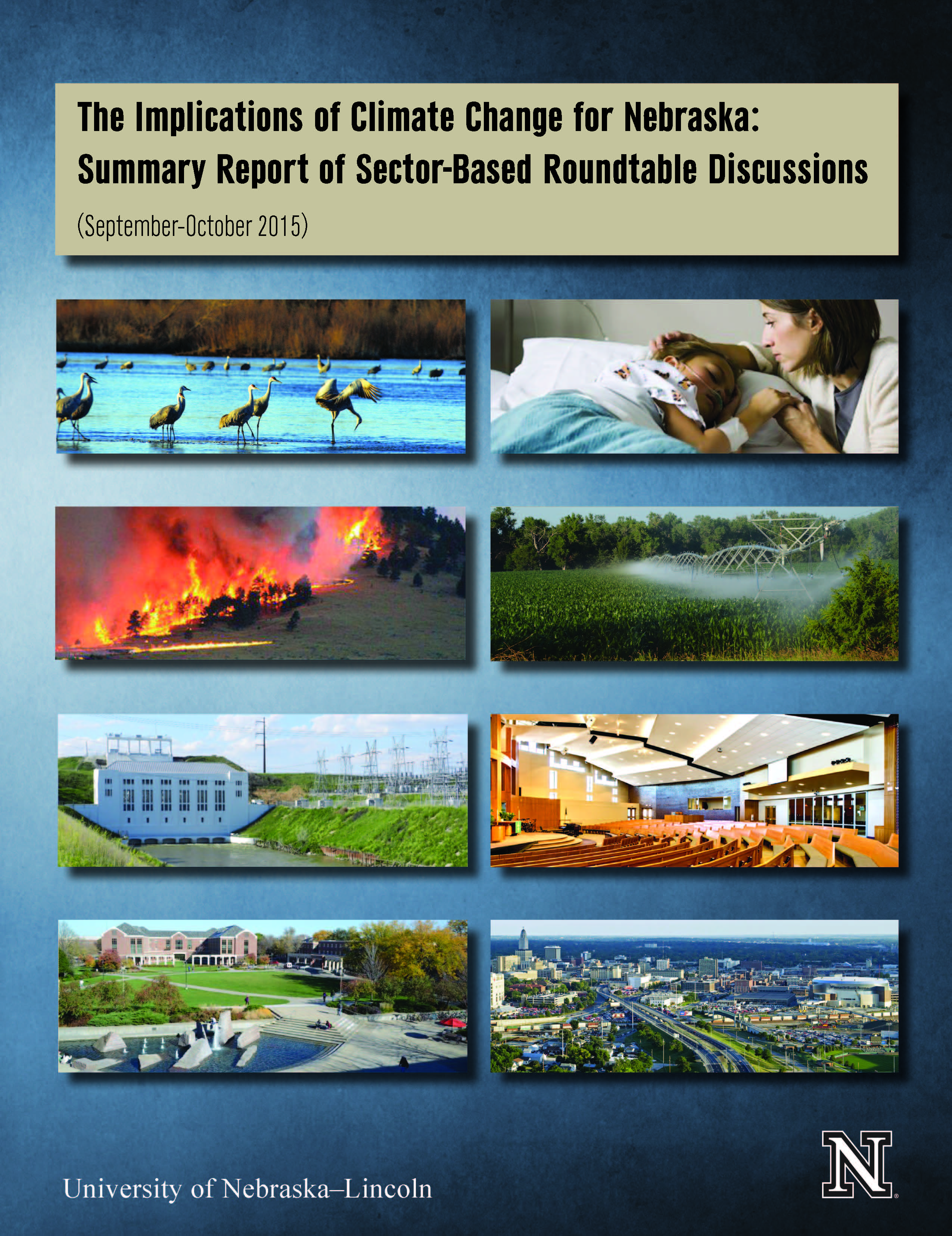
Nebraska needs to be proactive in developing a climate action plan in response to current and projected changes in climate, a new University of Nebraska-Lincoln report suggests.
The report shares the findings from eight roundtable discussions on the implications of climate change, hosted last fall by the School of Natural Resources. It also notes UNL's importance in leading the development of adaptation and mitigation measures and also in educating policymakers, decision makers and the public about climate change.
"Nebraska's water future deserves critical attention at this time," said lead author Don Wilhite, a UNL climatologist and co-organizer of the roundtable series. "The combination of rising temperatures, increased high-temperature stress days, reduced snowpack in the Rockies, more frequent droughts as well as heavy precipitation events all combine to indicate a very stressed environment for water in the future.
"These stresses will affect all aspects of life in Nebraska, and the more we can prepare for them now, the more resilient we will be in the future."
The latest report is available for free download at http://go.unl.edu/climatechange.
Wilhite and Climate Change Resource Specialist Kim Morrow organized the roundtables to raise awareness of the implications of climate change on eight areas: ecosystems and wildlife; human health; forests and fire; agriculture, food and water; energy availability, use and management; faith communities; college campuses; and urban and rural areas. More than 350 people participated, representing stakeholders with expressed concerns about the impacts of climate change on the state.
The roundtable feedback follows the widely read 2014 UNL report "Understanding and Assessing Climate Change: Implications for Nebraska." The 2014 document was the first to assess the implications of climate change on the state and has been referenced by city planners, policy advisers, environmental advocates, conservation groups and grassroots organizations. It is available at http://go.unl.edu/9dq0.
More details at: http://go.unl.edu/climatechange